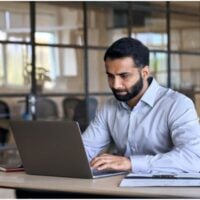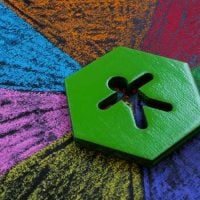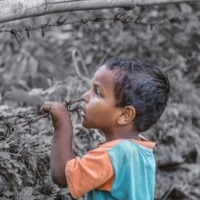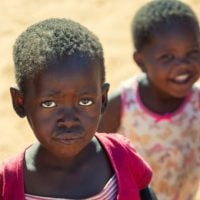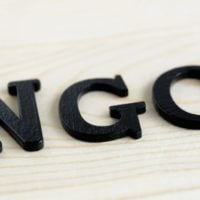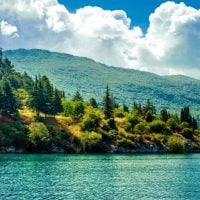Deadline: 16-May-2025
The Custodians of African Literature (COAL) through the Grassroots Accelerated Education Micro Grant invests in community-led initiatives that improve learning outcomes for out-of-school and underserved children in Nigeria.
In 2025 call for this Micro Education Grant will expand its reach, reinforcing the commitment to literacy and numeracy development, as well as other culturally and alternative models to education. By investing in grassroots education initiatives, they aim to create sustainable, scalable models that not only enhance learning outcomes but also contribute to long-term educational equity.
Funding Information
- If your project is selected, you’ll be eligible for a micro grant of up to ₦2,000,000, depending on your project’s scope and scale.
What they are looking for?
- To enhance access to quality education for marginalized and underserved children, COAL is seeking proposals from grassroots-led initiatives that deliver structured, foundational learning programs rooted in local context. The 2025 Micro Educational Grant builds on insights from the 2024 cohort, where successful projects demonstrated the power of locally adapted curriculum, skilled facilitation, and strong community engagement to create sustainable learning pathways.
- They are particularly interested in models and initiatives that:
- Deliver Foundational Literacy and Numeracy Skills: They are seeking projects that focus on building core competencies in reading, writing, and arithmetic through structured and developmentally appropriate learning strategies. The literacy component should incorporate phonics instruction, reading comprehension, writing practice that encourage sentence construction, journaling, creative arts and storytelling. Numeracy should be taught using real-life contexts, visual aids, and interactive games that help children grasp basic arithmetic concepts and build problem-solving skills in a fun and engaging manner.
- Adopt Child-Centred and Inclusive Teaching Methods: Successful proposals will employ experiential and play-based learning approaches that foster engagement and comprehension. Teaching should be inclusive, using low-cost materials and locally available resources to support diverse learning styles. Multi-sensory methods that incorporate sight, sound, and touch should be prioritized, ensuring that learning is accessible to all children regardless of ability or background.
- Promote Parent/guardian and Community Engagement: Strong community ownership and collaboration are essential to the success and sustainability of any educational intervention. Projects should actively involve parents, teachers, local government actors, educators, and youth in planning and implementation. This may include parental literacy sessions, community reading clubs, and peer mentoring initiatives that create a culture of learning and accountability within the community.
- Strengthen Facilitator/Teacher Training and Support: Projects should clearly outline how they will identify, train, and support community facilitators or teachers to deliver highquality education. Training should focus on both content and pedagogy, equipping facilitators to use inclusive, participatory methods. Ongoing support through coaching, peer learning, and performance feedback will be essential to ensure instructional quality and learner outcomes throughout the project duration.
- Ensure Strong Monitoring and Evaluation (M&E): They expect all proposals to include a robust monitoring and evaluation framework that articulates how learning progress will be tracked, measured, and reported. A clear logical model or theory of change should be presented, detailing the linkage between inputs, activities, outputs, and outcomes. Assessment tools, milestone tracking, and feedback mechanisms should be built into the implementation plan to support adaptive learning and continuous improvement.
- Support Transition into Formal Education: Projects should demonstrate a clear pathway for learners who are out of school to transition into formal or recognized alternative/informal education models. This should include alignment with national curriculum standards or working with schools and education authorities to facilitate enrolment.
- Demonstrate Scalability and Sustainability: Priority will be given to grassroots models that are affordable, replicable, and capable of being sustained beyond the grant period. Projects should avoid heavy reliance on high-cost tools and instead utilize locally sourced materials and community-driven solutions. Applicants should also show a vision for future growth whether through policy and practice integration, partnerships, or local resource mobilization.
Eligibility Criteria
- Support is exclusively granted to legally registered, non-profit, community-based organizations and social enterprises that are actively operating in Nigeria. Initiatives must have been operational for at least 2 years.
- Projects must contribute to literacy at grassroots, low-income and underserved communities in Plateau State.
- Projects must be locally led and demonstrate strong community engagement and support, including the involvement of parents, educators, government and other relevant stakeholders.
- Applicants must provide a clear plan for project implementation, including a timeline, budget, and expected outcomes within the 12-month grant period.
- Priority will be given to projects that have the potential for long-term sustainability and scalability beyond the initial grant period, with a clear vision for future growth and impact.
- Projects should incorporate innovative approaches, such as the use of technology, arts-based learning, and creativity to enhance educational outcomes and engagement.
- Organizations must demonstrate effective child safeguarding measures, including policies, procedures, and practices that prioritise the protection and welfare of children in their care.
- Applicants should demonstrate a commitment to monitoring, evaluation, and learning throughout the project lifecycle to ensure continuous improvement and accountability.
- Projects must prioritise disadvantaged and/or marginalised communities, with a primary focus on children and young people up to the age of 18.
Ineligibility Criteria
- Organizations are not eligible to apply if they:
- Represent political parties, religious organizations or engage in lobbying activities.
- Are not legally registered.
- Are for profit entities.
- Organizations with no track record in educational initiatives
- Organizations without implementing capacity in Plateau State
- Organizations without basic financial systems in place
For more information, visit COAL.

